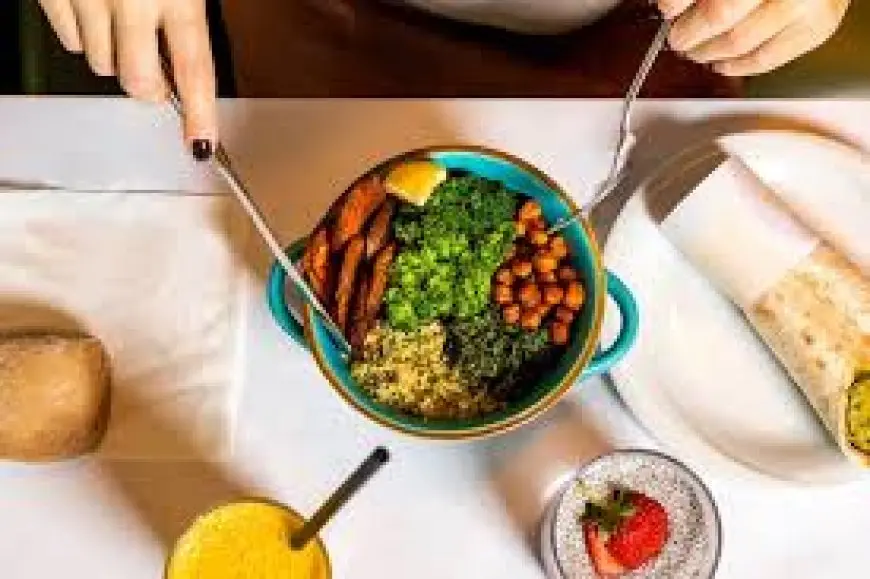How to Transition to a Plant-Based Diet
How to Transition to a Plant-Based Diet

Switching to a plant-based diet can be a rewarding journey for your health, the environment, and animal welfare. Whether your goal is to improve nutrition, reduce your environmental footprint, or explore a compassionate lifestyle, transitioning to a plant-based diet doesn't have to be overwhelming. With careful planning and gradual adjustments, you can successfully adopt a plant-based way of eating.
Benefits of a Plant-Based Diet
Improved Health: Plant-based diets are rich in nutrients, fiber, and antioxidants, which help reduce the risk of chronic diseases such as heart disease, diabetes, and certain cancers.
Weight Management: Eating more plant-based foods can support healthy weight management due to their lower calorie density and higher fiber content.
Environmental Impact: A plant-based diet reduces greenhouse gas emissions and saves water and land resources.
Ethical Considerations: Reducing or eliminating animal products aligns with values of compassion and animal welfare.
Steps to Transition to a Plant-Based Diet
Start Gradually
Transitioning doesn’t have to happen overnight. Begin by incorporating one plant-based meal a day or dedicating a day of the week to eating plant-based, such as "Meatless Mondays."
Focus on Whole Foods
Base your diet on whole, minimally processed plant foods like fruits, vegetables, whole grains, legumes, nuts, and seeds. These are nutrient-dense and provide the foundation for a healthy diet.
Find Plant-Based Replacements
Replace animal products with plant-based alternatives:
- Milk: Try almond, soy, oat, or coconut milk.
- Meat: Use tofu, tempeh, seitan, jackfruit, or plant-based burgers.
- Cheese: Experiment with cashew cheese or store-bought vegan options.
Plan Your Meals
Meal planning can make the transition easier. Prepare balanced meals that include protein, healthy fats, and complex carbohydrates.
- Example: A quinoa bowl with roasted vegetables, chickpeas, and tahini dressing.
Stock Your Pantry
Keep plant-based staples on hand, such as:
- Beans and lentils.
- Whole grains like brown rice, quinoa, and oats.
- Nuts, seeds, and nut butters.
- Fresh and frozen fruits and vegetables.
Learn to Read Labels
Check food labels for hidden animal ingredients like gelatin, casein, or whey. Opt for products that are clearly labeled as plant-based or vegan.
Experiment with Recipes
Explore new plant-based recipes to keep meals exciting. Try global cuisines like Indian, Mediterranean, or Thai, which naturally emphasize plant-based ingredients.
Ensure Nutritional Balance
A plant-based diet can meet all your nutritional needs if well-planned. Focus on:
- Protein: Lentils, chickpeas, tofu, tempeh, and edamame.
- Iron: Spinach, lentils, fortified cereals, and pumpkin seeds (pair with vitamin C for better absorption).
- Vitamin B12: Fortified foods or supplements.
- Omega-3 Fatty Acids: Chia seeds, flaxseeds, walnuts, and algae-based supplements.
Join a Community
Connect with others who follow a plant-based lifestyle for support, recipes, and tips. Social media groups and local meet-ups can be helpful.
Be Kind to Yourself
It's normal to face challenges or slip-ups during the transition. Treat these moments as learning opportunities and keep moving forward.
Common Myths About Plant-Based Diets
-
Myth 1: "You can't get enough protein."
Truth: Plant-based foods like beans, tofu, and quinoa are excellent protein sources. -
Myth 2: "Plant-based diets are too expensive."
Truth: Staples like rice, beans, and vegetables are budget-friendly and accessible. -
Myth 3: "Plant-based diets are boring."
Truth: Plant-based cooking offers a wide variety of flavors, textures, and cuisines to explore.
Transitioning to a plant-based diet is a journey that can benefit your health, the planet, and animals. By taking small, consistent steps, experimenting with new foods, and staying mindful of your nutritional needs, you can successfully embrace a plant-based lifestyle. Remember, it's not about perfection but progress, so enjoy the process and celebrate every step forward.







